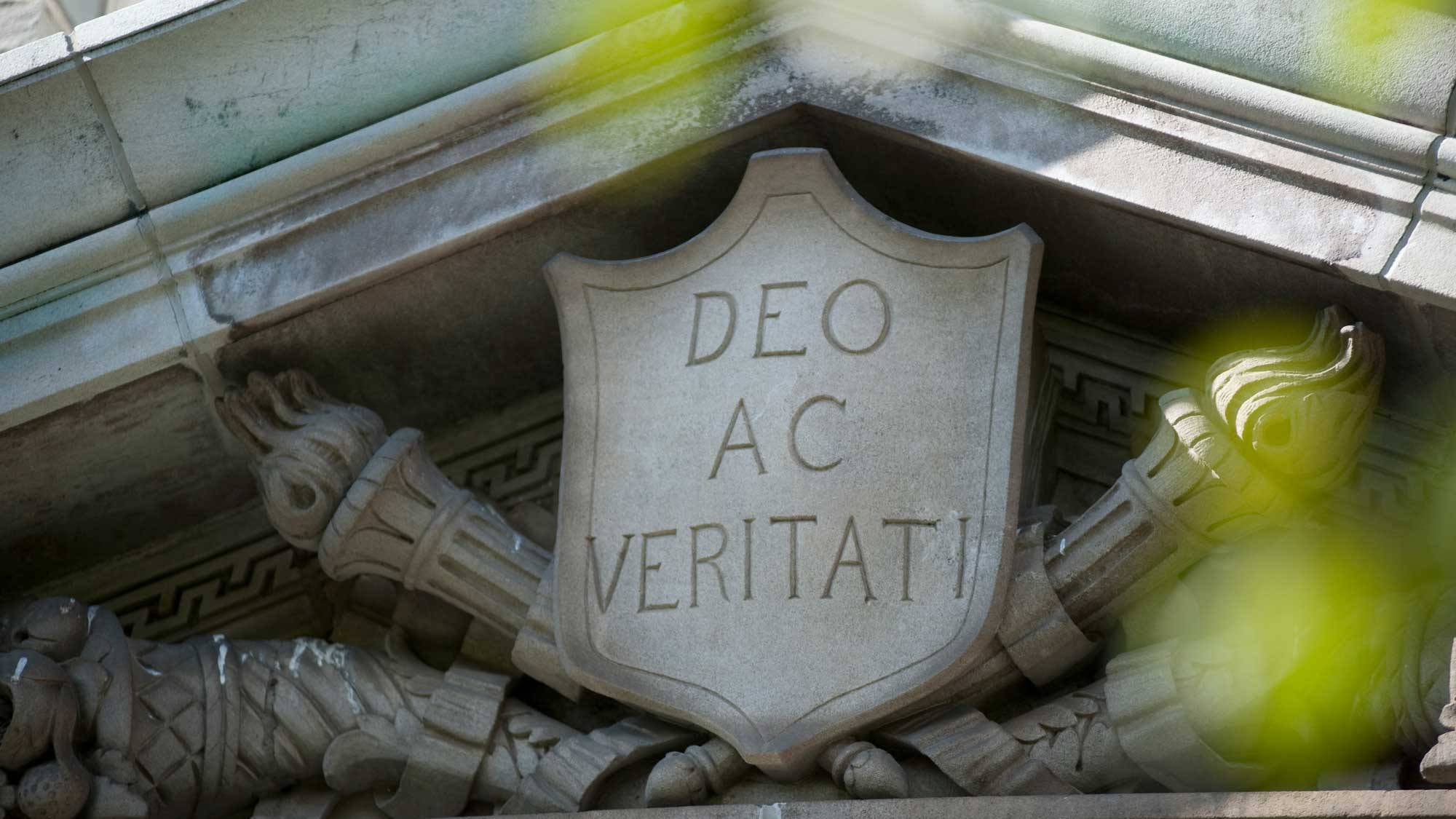Editor’s note: Wondering what’s happening in the classroom at Colgate? Here’s a real-time glimpse into academic life on campus — a syllabus from a course underway this semester.
ENST 324 Hunting, Eating, and Vegetarianism
Ian Helfant, Professor of Russian and Eurasian Studies; Director, Environmental Studies Program
Course Description
Historically, hunting and fishing for food have been some of the most direct ways humans have interacted with nature. However, in modern industrialized society, people are often unaware where the flesh they consume comes from, as most animals and fish are raised, caught, and slaughtered on a mass scale. Subsistence hunting and fishing, too, have become increasingly problematic as habitats disappear and the human population expands. While the majority of people remain carnivorous, some have switched to vegetarian or vegan diets for ethical, religious, health-oriented, or environmental reasons.
This course uses a humanistic perspective to examine these fundamentally important issues in an international and historical context. It also focuses on the local environment, with visits to a local beef farm and an apiary, in addition to an analysis of Hamilton’s ongoing deer cull. This course utilizes an interdisciplinary approach, combining literature, artistic and documentary films, autobiographical accounts, online hunting forums, self-reflective essays, and scholarly analyses to investigate the intertwined themes of hunting, industrial versus family farming and fishing, vegetarianism, veganism, and their relevance to our lives as individuals and members of industrialized society.
Course Goals
1. Develop nuanced and firmly grounded ethical stances concerning our relationships with some of the key animal species with whom we coexist and upon which many of us subsist.
2. Understand the challenges and opportunities that confront those who hope to eat responsibly, whether they choose an omnivorous or plant-based diet.
Key Assignment
In addition to a reflective essay, a draft research paper, and daily reading responses throughout the semester, this course culminates in a 12 to 15-page research paper or an in-class presentation option.
Selected Course Materials
Barber, D. The Third Plate: Field Notes on the Future of Food (2014).
Cartmill, M. A View to a Death in the Morning: Hunting and Nature through History (1996).
Cerulli, T. The Mindful Carnivore: A Vegetarian’s Hunt for Sustenance (2012).
Foer, J. S. Eating Animals (2009).
Helfant, I. That Savage Gaze: Wolves in the Nineteenth-Century Russian Imagination (2018).
Pachirat, T. Every Twelve Seconds: Industrialized Slaughter and the Politics of Sight (2011).
Pollan, M. The Omnivore's Dilemma: A Natural History of Four Meals (2007).
Applestone, J. and J. “Our Story,” in The Butcher’s Guide to Well-Raised Meat (2011).
Berry, W. “The Pleasures of Eating,” in Bringing it to the Table: On Farming and Food (2009; 1st pub’d 1989).
Brown, L. “Chapter 3: Moving up the Food Chain,” in Full Planet, Empty Plates (2012).
Greenberg, P. Four Fish: The Future of the Last Wild Food, “Introduction” and “Salmon” (2010).
Hemingway, E. “The Short Happy Life of Francis Macomber” (1936).
Imhoff, D. The CAFO Reader: The Tragedy of Industrial Animal Factories (2010) [excerpts].
Nelson, Richard. Heart and Blood: Living with Deer in America (1998).
Nelson, R. “Introduction,” in A Hunter’s Heart, ed. David Petersen (pp. 1-10).
Stange, Mary Zeiss, “Introduction” from Woman the Hunter (1997) and Heartshots: Women Write About Hunting (2003) [excerpts].
Trueblood, T. “I Don’t Want to Kill a Deer” (1960).
Walters, K. Vegetarianism: A Guide for the Perplexed (2012).
Attenborough, David. The Life of Mammals (2002–3)
Disney, Walt. Bambi (1942)
Fougea, Frederic. Lord of the Animals (1989–1996)
Wasserman, S. Meat Hooked! (2012)
The Professor Says:
“The course is an opportunity for students to really do a deep dive into their thinking about what they eat and the ramifications of that for our world. We confront the fact that diet has enormous implications not only for individuals, but for the health of our world, and we try to balance between the idea of individual choice and the fact that we, as a society, need to make really important collective decisions about our dietary habits and the way our food resources flow.
“I hope that, at the end of the semester, my students will have grappled with the ethics, health consequences, and environmental consequences of their dietary choices so that no matter what they decide — if they become a vegan, an omnivore, a flexitarian, or pick up hunting — they are aware of the effects of animals’ lives on our ecosystems and of the nature of industrial food production.”
